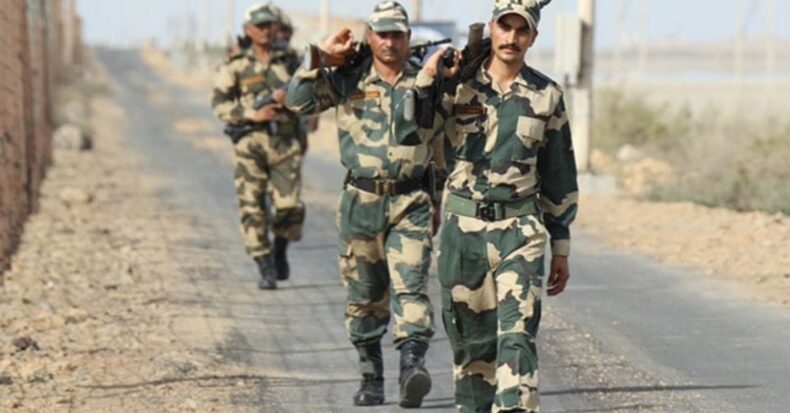The Ministry of Home Affairs subsequently increased the Border Security Force’s (‘BSF’) jurisdiction to the states of Punjab, Assam, and West Bengal, a move that has been criticized by the conditions of West Bengal and Punjab for breaking the federal system and intruding on state police rights.
States have complained that BSF’s expanded jurisdiction interferes with state authority because law and order are state issues.
Where does the Ministry of Home Affairs get its authority to extend BSF’s powers, and what grounds are states using to claim BSF’s enhanced capabilities impinge on their policing powers?
BSF
The Border Security Force (BSF) is one of India’s Central Armed Police Forces, established to protect India’s national interests, mostly against internal threats.
The Ministry of Home Affairs is in charge of the Central Armed Police Forces. Border Security Force, Central Industrial Security Force, Central Reserve Police Force, Sashastra Seema Bal, and Indo-Tibetan Border Police are the other military units that make up CAPF.
The Border Security Force (BSF) is one of India’s Central Armed Police Forces, established to protect India’s national interests, mostly against internal threats.
The Ministry of Home Affairs is in charge of the Central Armed Police Forces. Border Security Force, Central Reserve Police Force, Central Industrial Security Force, Indo-Tibetan Border Police, and Sashastra Seema Bal are the other military units that makeup CAPF.
The BSF’s principal mission is to protect India’s border with Pakistan and Bangladesh. ITBP is in charge of guarding India’s border with China, whereas Sashastra Seem Bal is in charge of guarding India’s border with Nepal and Bhutan.
The Border Security Force Act, 1968 establishes the power, duties, and jurisdictional constraints of the Border Security Force.
Section 139(1) of the BSF Act grants the Central Government, and thus the Ministry of Home Affairs, the authority to determine the BSF’s jurisdictional limits.
BSF’s jurisdiction extends to the ten states and two union territories that share a border with either Pakistan or Bangladesh, namely Manipur, Mizoram, Tripura, Nagaland and Meghalaya, Gujarat, and Ladakh, as stated in the BSF Act’s Schedule.
The jurisdictional powers of the BSF within these states vary depending on the form.
Limitation of BSF Act 1968
BSF’s jurisdiction was defined in 2014 as “the entire area comprised in the States of Mizoram, Manipur, Nagaland, Tripura, and Meghalaya, as well as so much of the area consisting inside a belt of 80 km in the State of Gujarat, 50 Km in the State of Rajasthan, and 15 Km in the States of Punjab, West Bengal, and Assam, running along the Indian borders.”
The 2021 notice modifies the 2014 notification by extending the BSF’s jurisdiction in Punjab, West Bengal, and Assam to 50 kilometers inside international borders.
Previously, the BSF’s powers in these states were limited to a range of up to 15 kilometers. The state of Gujarat’s jurisdictional limit has been decreased from 80 kilometers to 50 kilometers.
Enhancement of Jurisdiction in Central Government Power
The Central Government can notify the area and scope of the border force’s operating mandate from time to time in the execution of the authorities given by S.139 (1) of the Border Security Force Act, 1968.
S.139 (1) states that the Central Government may direct, by publication in the Official Gazette, that any member of the Force may execute such powers and responsibilities under the Acts mentioned in the said orders within the local boundaries of such territory surrounding India’s borders.
Registration of Foreigners Act, Passport (Entry to India) Act, Foreigners Act, FEMA, Central Excises and Sale Act, Customs Act, or any cognizable offense punishable under any other Central Act are among the acts mentioned. Furthermore, S.139 stipulates that if the Central Government wishes to bestow or impose any rights or obligations exercisable under a State Act on members of the BSF, the State Government must agree.
S.139, subsection (3), further mandates that orders issued under this provision be placed before Parliament and approved by both Houses.












